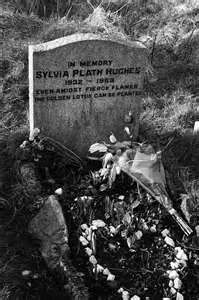On the flight to New York this morning, I was able to read some more from Sylvia Plath’s journals, continuing through her junior year at Smith to her “nervous breakdown.” I was struck by the transition as the light in this luminescent young woman gradually burns out. Plath is aware of her changing perspective and sees it as a reflection on the nature of truth.
For a time I was lulled in the arms of a blind optimism with breasts full of champagne and nipples made of caviar. I thought she was true, and that the true was the beautiful. But the true is the ugly mixed up everywhere, like a peck of dirt scattered through your life.
Plath, like so many Modernists, doesn’t believe there is a God beyond this world. Ironically, she continues to call on this God in whom she doesn’t believe, crying out for clarity, vision, and beauty.
God, let me think clearly and brightly; let me live, love, and say it well in good sentences…
She prays in vain, however. So, she tries to will herself to believe.
Believe in some beneficent force beyond your own limited self. God, god, god: where are you? I want you, need you: the belief in you and love and mankind. You must not seek escape like this. You must think.
It is unclear to me whether Plath directs these last two sentences at God or herself. Herself, I think. She is the one desperately seeking escape – a “return to the womb” (as she expressed it earlier). She is the one frantically trying to think, to come up with a reason to live.
There is a huge gap in Plath’s journals after these words. The editor’s note indicates she attempted suicide. After treatment, she returned to graduate from Smith. She didn’t keep a journal her senior year. Her next entries pick up during her post-graduate work.
These later entries reveal a more disjointed, jaded, perhaps resigned perspective. God makes an appearance – only to note His absence.
God is on vacation with the pure transcendent sun and the searing heat that turns the flawed white body of our love to glass.
Plath went on to produce some masterpieces of poetry and literature (including The Bell Jar), and it is worth noting that she excelled academically even after being aggressively treated with electro-shock. In her journals, however, she seems to lose (at least temporarily) the ability to engage in deep self-reflection spiritually, psychologically, and intellectually. She also seems to lose even the glimmer of hope she once had for something (or Someone) eternal.

“SYLVIA PLATH” from T. Shahrizan T. Mustapha in Caricatures





